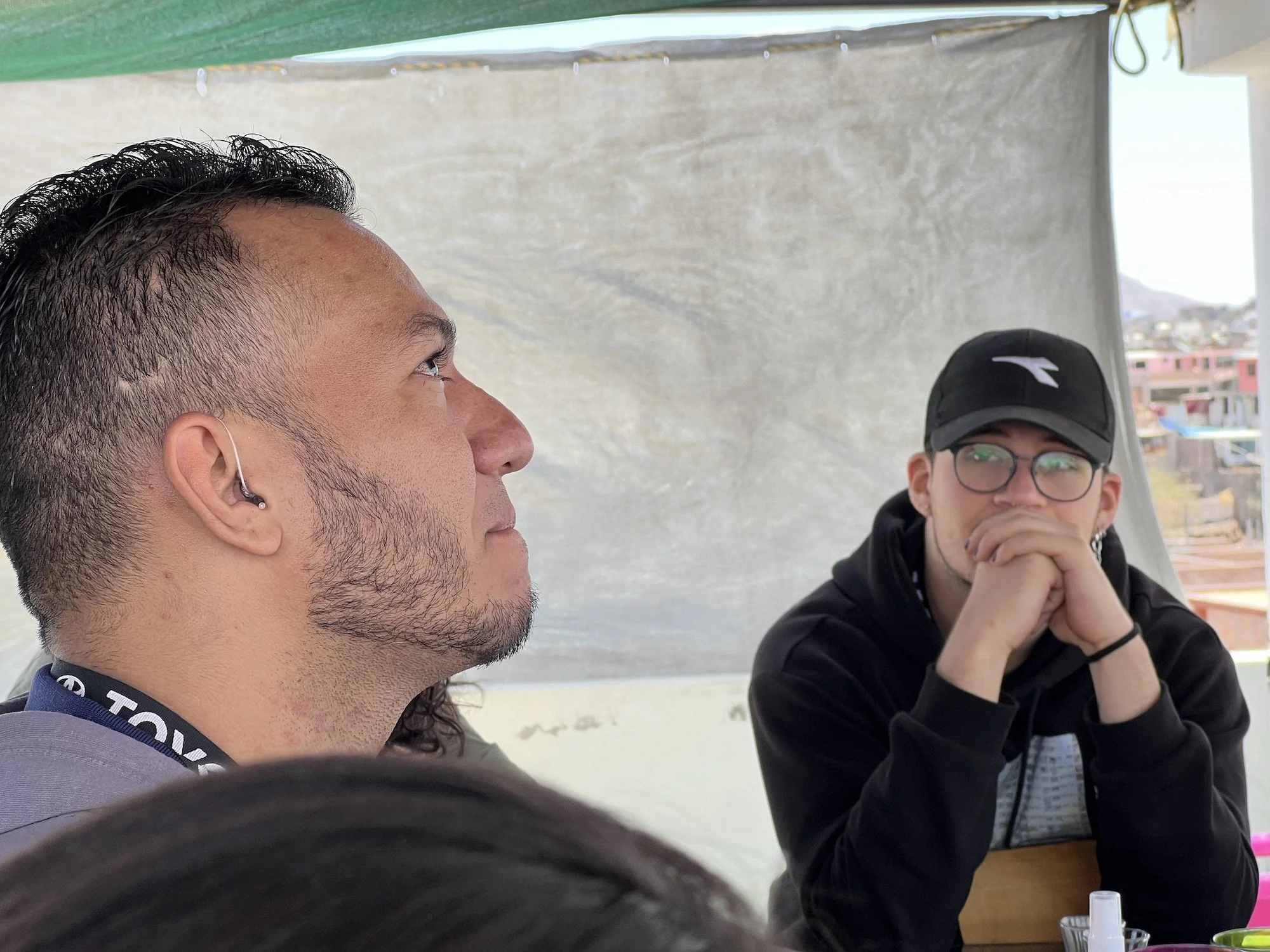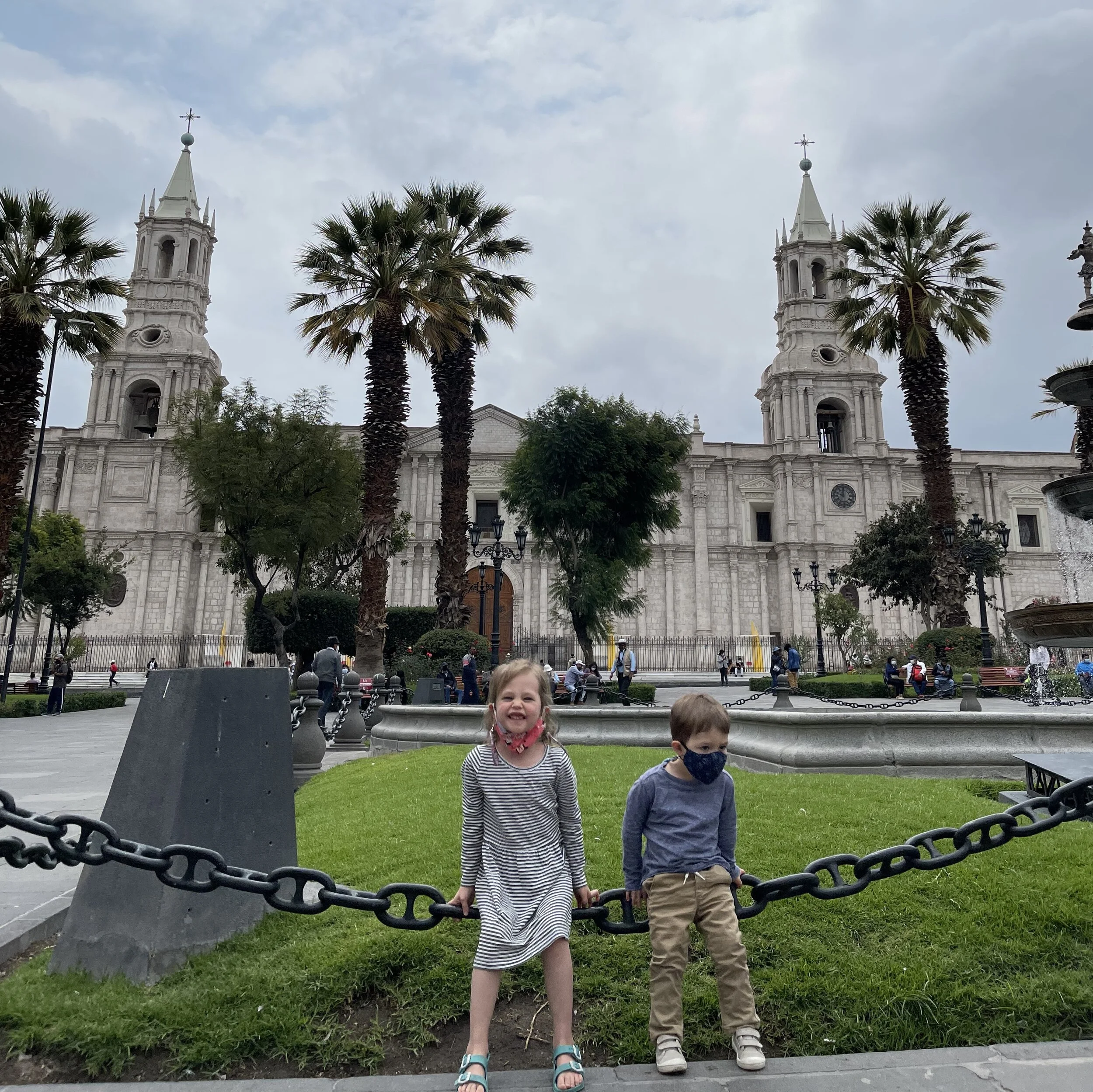The House Churches - April 2021
We never thought our house churches would meet virtually for a year! We’re deeply grateful for the opportunity to pray, sing, read, and interact meaningfully as a church every Sunday, though we long to share a table, breakfast, and bread and wine together again someday in the not-too-distant future. We’ve been using the Discover Bible Study process some in our church gatherings and are now sharing the responsibility of choosing a passage and asking the questions for the group’s discussion. Our prayer is that the Spirit would guide the church in its reading of scripture, asking questions about God and humanity, and bringing faith to life in the practice of loving our neighbors.
House Churches Launch into the 21st Century with a Virtual Connection
Teaching Kids When Church is at Home
The kids’ Bible class in home churches on the Peruvian mission field looks very different from our homeland experiences. It is often much more chaotic and informal with a mixture of lighter and darker faces and the English and Spanish languages. However, the same principle remains: instilling in the children of our church the foundation of faith.
Church in Arequipa: Prayer
Sundays in Arequipa are currently focused on prayer. Personally, I have felt convicted to pray more about the work. Knowing the prayerfulness of some brothers and sisters who are worthy of imitation, I always feel I should be more prayerful. The difference now is that I am feeling called, urged, prompted to pray. I hesitate to say "more," though, as if the issue were quantity. It is, I think, about a way of seeing the world—perceiving the need to live, think, and speak more according to the way things really are. Prayer, it seems, is often a matter of listening and looking, hearing and seeing, fixing eyes and mind on a dimension of reality that we call unseen.
Church in Arequipa: CeDeTe
Church in Arequipa: Commitment
Part 10: Theological Education as Missional Equipping
No one is really in a position to say what missional means—it’s still under negotiation among those who care about the precision with which we use words connected to important ideas. The ideas to which missional is connected are very important, in my opinion, but the discussion of the word for the last decade or so has been especially fraught because it is also about a movement. Local expressions of Christianity are changing, and some (hopefully much) of what is emerging is about a realignment with God’s mission. In part, this means recontextualizing the gospel, and therefore the church, in Western postmodern subcultures. And in part it means correcting some of the assumptions and structures that have long prevented congregations everywhere from participating in God’s mission to the extent they might have.
Part 9: Decision-Making and the Offering
After months of studying the offering, at our last general meeting the Peruvian disciples made some decisions about our collective practice of giving as a network of house churches. Each group will have an envelope available at every Sunday meeting, placed somewhere out of the way, in which those who wish can discretely place their offering. Two people will count the offering together after the meeting, seal the envelope, record the amount, and both sign the envelop. The church elected Etelvina, Paty, and Alfredo to administrate the money received.
Part 8: Membership
How do you suppose the early church thought about “membership”? Or did they? Of course, the New Testament doesn’t mention anything about it. There are a number of references to specific house churches, which were identified by the owners of the houses (Rom 16:5; 1 Cor 16:19; Col 4:15; Philem 2). This doesn’t tell us much except that the owners were fixed members of particular congregations.



